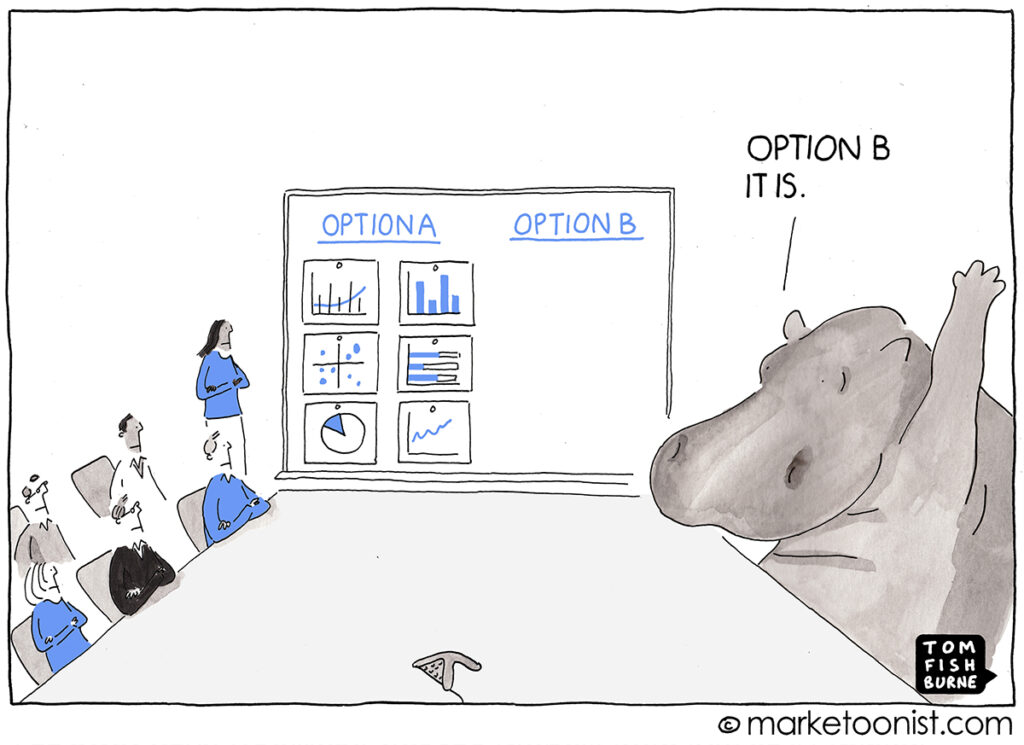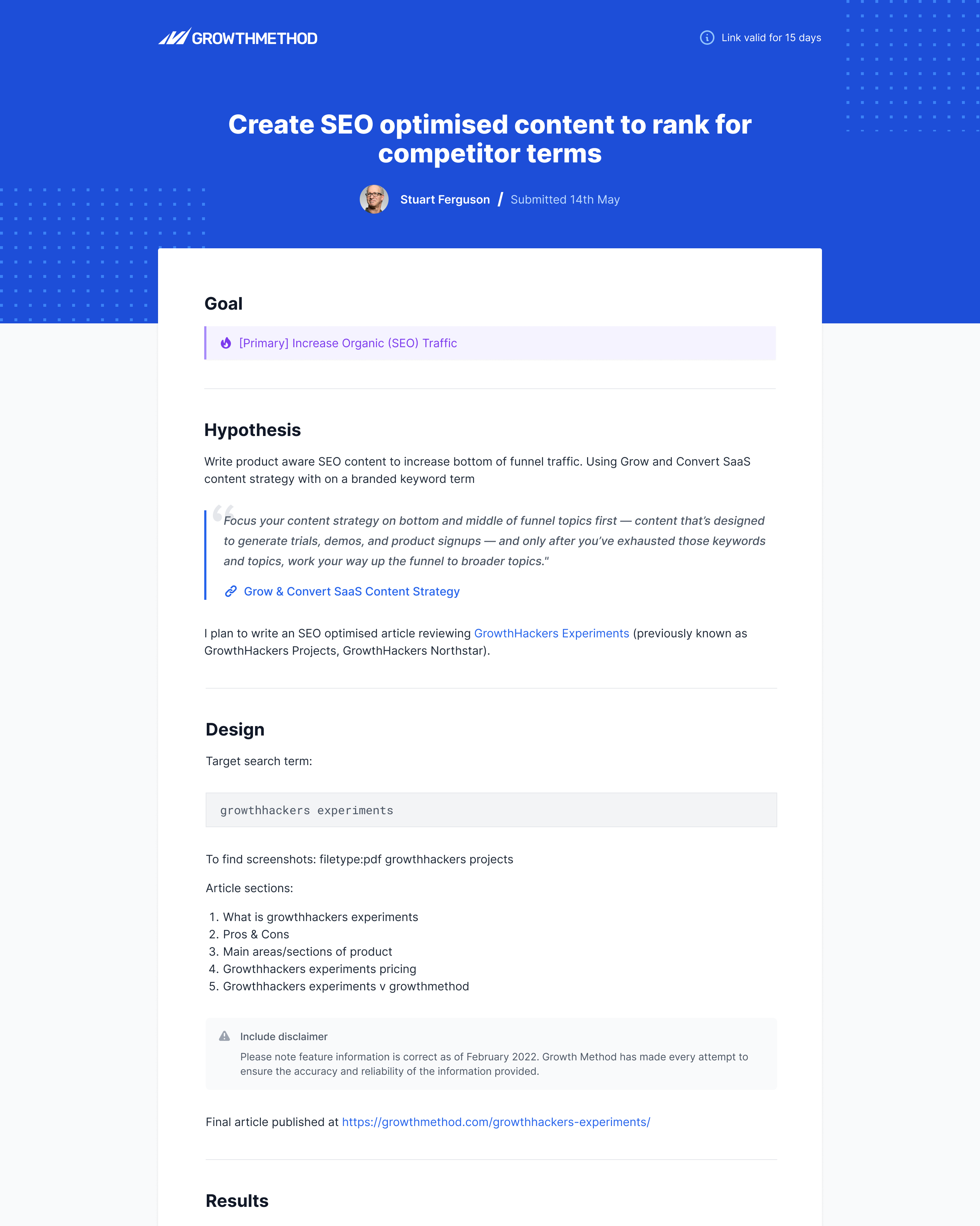The HiPPO Effect: A dangerous animal in growth
Article originally published in February 2022 by Stuart Brameld. Most recent update in August 2023.
Request a demo
Project management for growth and agile marketing professionals. Map your acquisition funnel, integrate analytics and run agile experiments.
Experiment results
Recent experiments results include competitor SEO, AI-driven content, exit-intent modals and AB testing homepage headlines.
Case study
"We are on-track to deliver a 43% increase in inbound leads this year. There is no doubt the adoption of Growth Method is the primary driver behind these results."
![]()
Certified
We are vetted mentors with Growth Mentor and a partner with the Agile Marketing Alliance.
The HiPPO effect, or Highest Paid Person’s Opinion, describes a company culture where decisions are made based on the opinion of the highest paid person in the room.
What is the HiPPO?
1. noun, plural hip·pos. Informal.
According to Wikipedia, the hippopotamus, also called the hippo, common hippopotamus or river hippopotamus, is a large, mostly herbivorous, semiaquatic mammal and ungulate native to sub-Saharan Africa.
2. noun, singular, Informal.
HiPPO in a business context refers to the highest paid persons opinion (often shortened to HiPPO). Decisions in companies with a HiPPO culture are made based on seniority and authority, rather than using data-driven decision making.
The Highest Paid Person’s Opinion
The HiPPO is an old management style where the most senior person in the room is seen as the expert. The HiPPO is assumed to have the best understanding of the situation and so their opinion is prioritised over others.

This may be the result of the HiPPO having more conviction, organisational knowledge, or working longer hours. Regardless of the cause, it results in one individuals opinions carrying considerably more weight than others.
The problem with the HiPPO effect
Companies need to find the ideas that are likely to have the biggest positive impact on team objectives and KPIs. It doesn’t matter where ideas come from (a designer, an engineer, the CEO or the office cleaner), all ideas should be considered and prioritised equally and considered purely based on their ability to influence team objectives.
No member of a growth team, no matter how senior or experienced, can predict which ideas will work and which won’t – there are just too many unknowns.
In short, the HiPPO is a dangerous animal in the world of growth.
Without data, you’re just another person with an opinion
W. Edwards Deming
A HiPPO mentality introduces gut feelings and emotion into this process and reduces the likelihood of the team working on the most impactful opportunities. Where companies have traditionally used opinions and archaic decision-making processes to place bets on a handful of unproven ideas, growth marketers are now adopting more quantitative scoring models.
How to remove the HiPPO effect?
Good growth marketers, and growth marketing teams, default to using data rather than intuition and opinion where possible.
Prioritisation frameworks ensure growth marketing teams avoid the HiPPO culture and are more intentional and intelligent about their efforts. The common scoring language removes subjectivity when evaluating marketing ideas. The end result is an unambiguous, prioritised todo list for your marketing or growth team.
In addition to preventing HiPPO culture, using a prioritisation framework forces the growth team to be honest, and avoid human nature where people tend to:
- Overestimate the probability of success
- Inflate the impact of recent work
- Underestimate the amount of effort required to implement something
It also encourages the team to think about ideas ahead of time, and removes gut feelings and emotion from the process.
Other articles you might like
Here are some related articles and further reading you may find helpful.
- The HIPE framework: a prioritisation framework for growth marketers
- The BRASS framework: a prioritisation framework growth marketers
- The PXL framework: a prioritisation framework for growth marketers
- The PIE framework: a prioritisation framework for growth marketers
- The HiPPO Effect: A dangerous animal in growth


